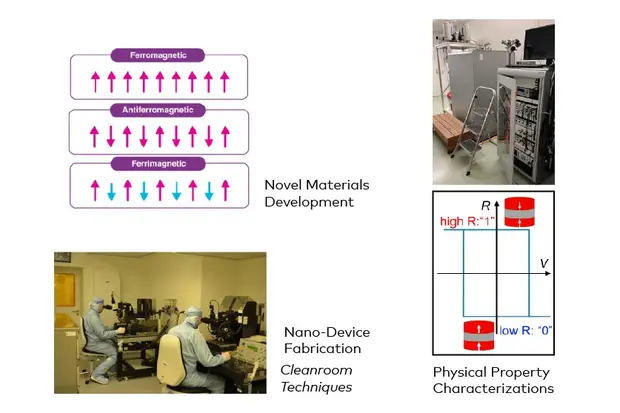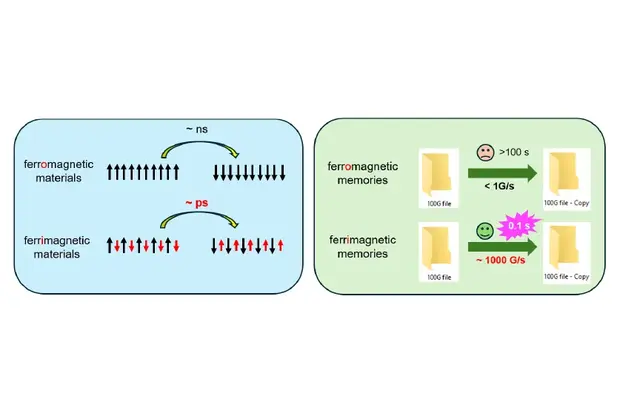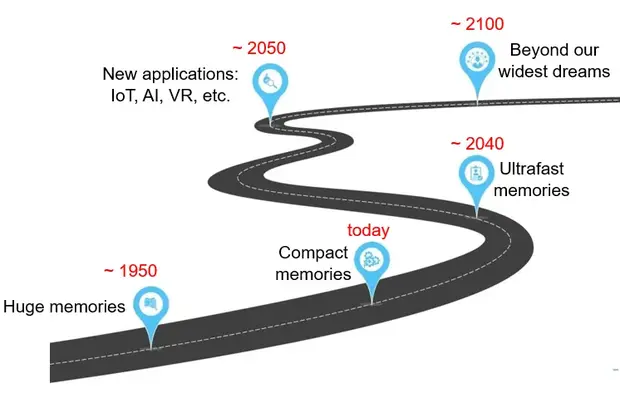Memories of the Future
We’re producing more data than ever, but our storage and processing methods are struggling to keep up. Imagine a technology that could store and process data faster than anything we know today. In this video, Dr. Hua Lv explores new approaches to handling our growing digital world.

Why Do We Need Better Data Storage?
Data storage technologies are the backbone of modern life, from social media to cloud computing, allowing us to keep, access, and use vast amounts of data every day. However, as technology advances, today’s data storage solutions face critical limitations, such as data capacity and processing speed.
With ever-growing data demands, we face two major challenges:
- How can we store such a large amount of data efficiently?
- How can we make data processing faster?
A promising solution to these issues lies in Magnetic Random-Access Memories (MRAMs), which have the potential to make both data storage and processing faster and more efficient.
Developing Next-Generation MRAMs with Novel Materials
To push data storage forward, researchers are developing new types of magnetic memory devices using innovative materials and fabrication methods, including:
- Ferrimagnetic Materials: Unlike traditional ferromagnetic materials, ferrimagnetic materials enable faster spin reversal.
- Nano-device Fabrication: Cutting-edge nanotechnology is used to create ultra-small, high-performance devices.
- Physical Property Characterizations: Advanced techniques allow precise analysis of material properties, leading to better design and functionality.
Faster Speeds, Higher Performance
Ferrimagnetic materials are expected to revolutionize data storage by achieving spin reversal speeds in the picosecond range, much faster than current ferromagnetic memory speeds in the nanosecond range. This means that ferrimagnetic memories could potentially reach speeds of up to 1000 gigabits per second, 1000 times faster than today’s ferromagnetic devices (< 1 Gbps).
Shaping the Next Chapter of the Information Era
Ultrafast data processing will be transformative across industries, enabling real-time data analysis and supporting emerging technologies. This progress will benefit applications in:
- Real-Time Data Analysis
- Virtual Reality
- Internet of Things
- Machine Learning and Artificial Intelligence
This leap in technology will enable smarter, faster, and more interactive digital experiences, marking a new era in data and information technology.
Presented by

Dr. Hua Lv, Spintronics and Magnetotransport


